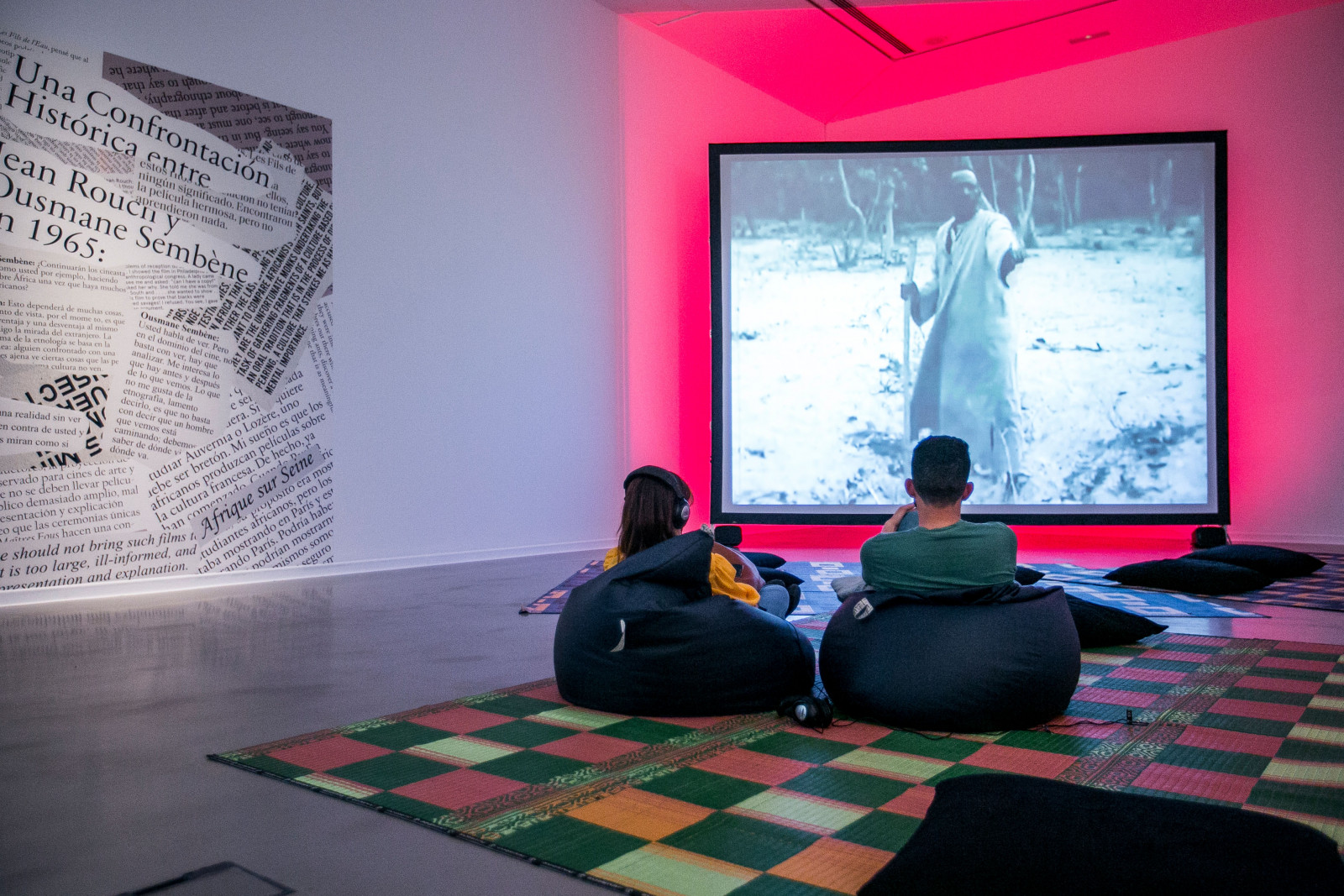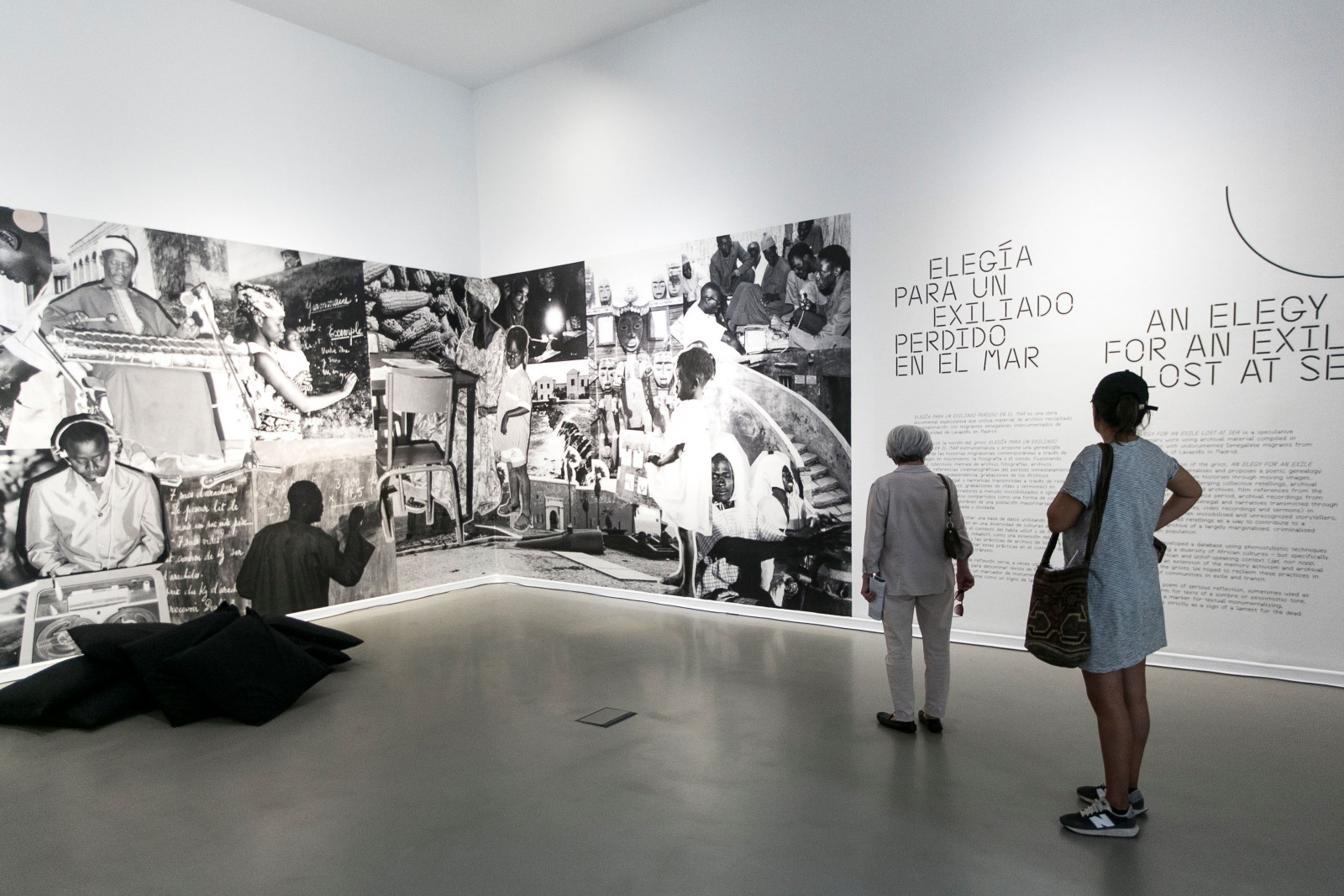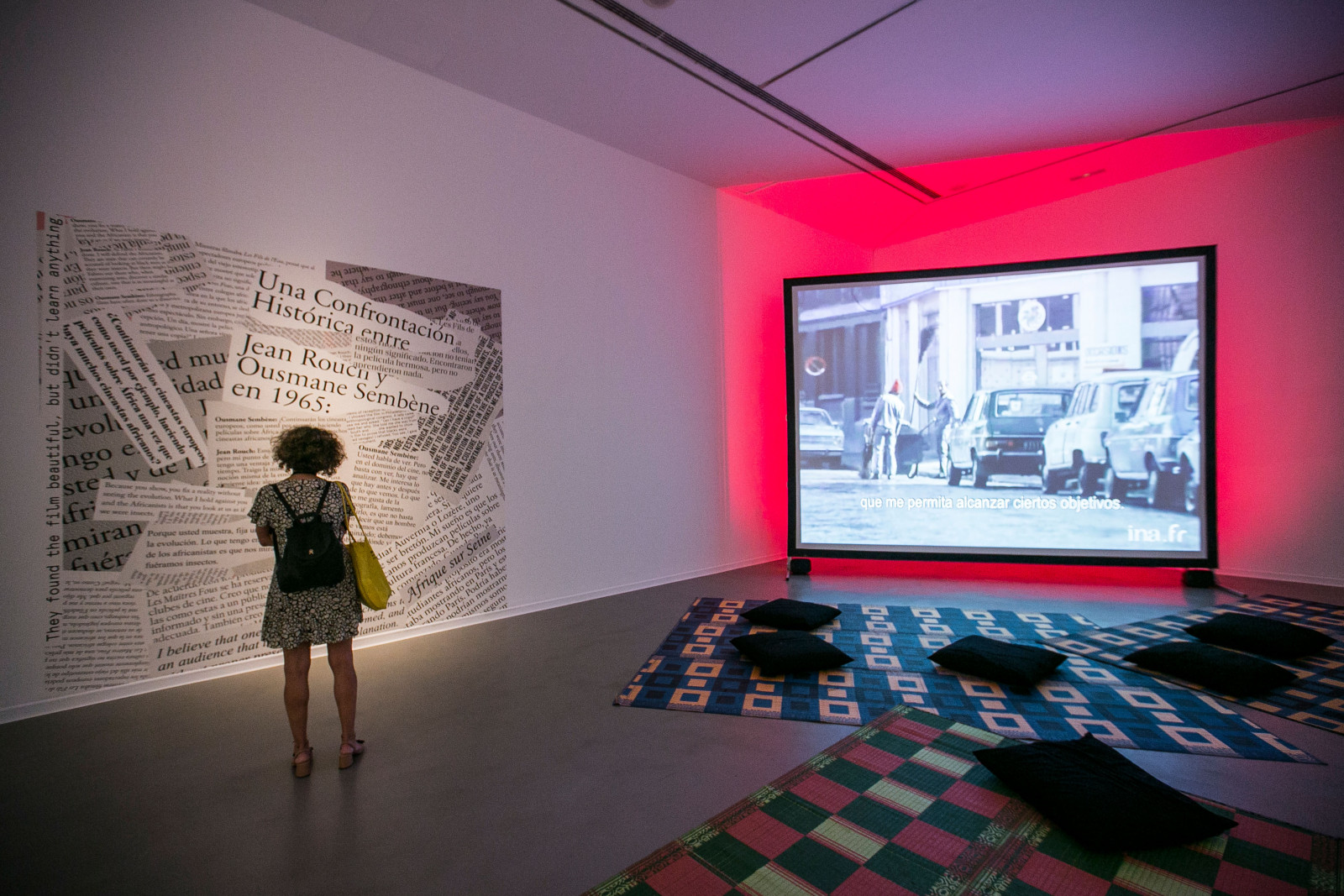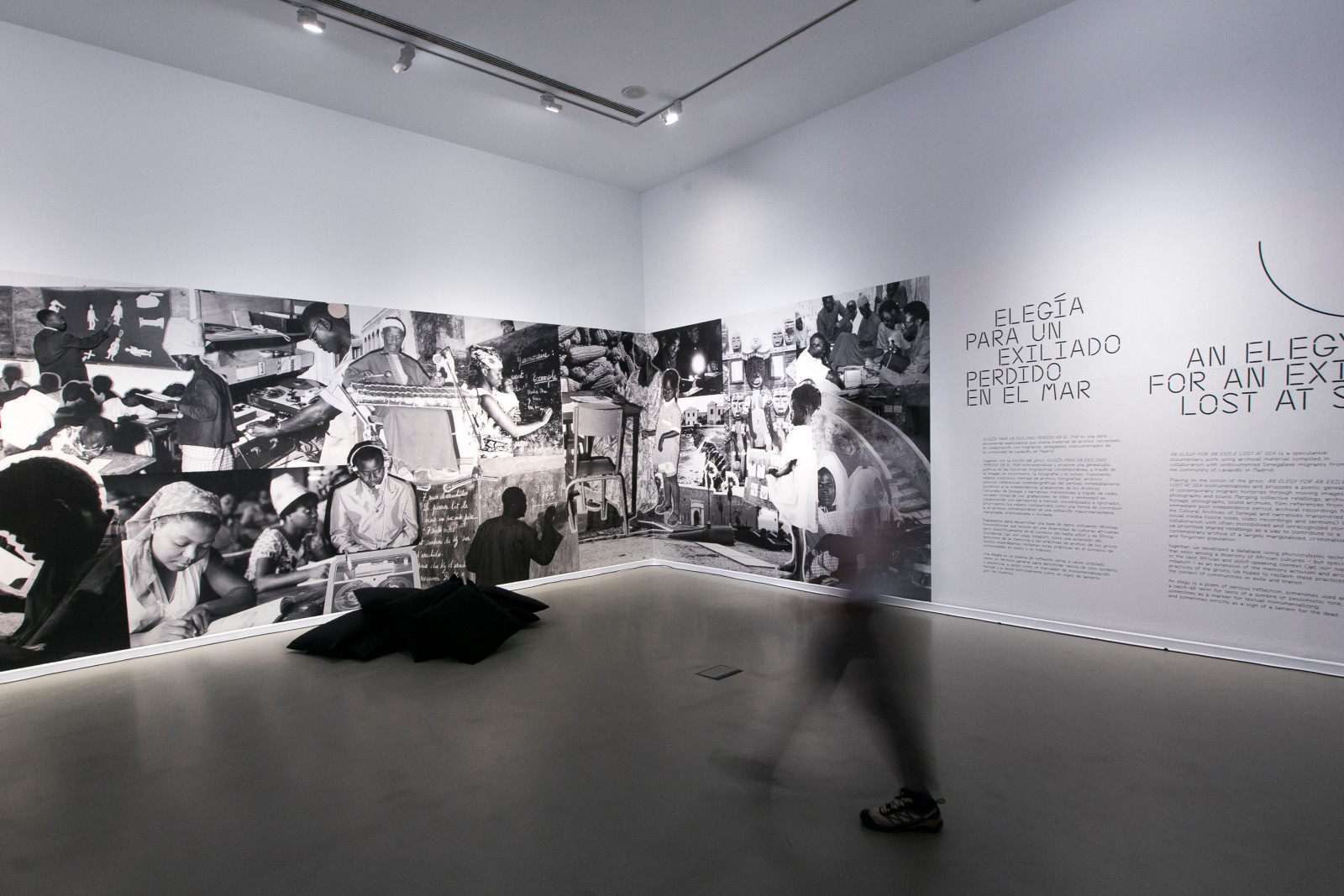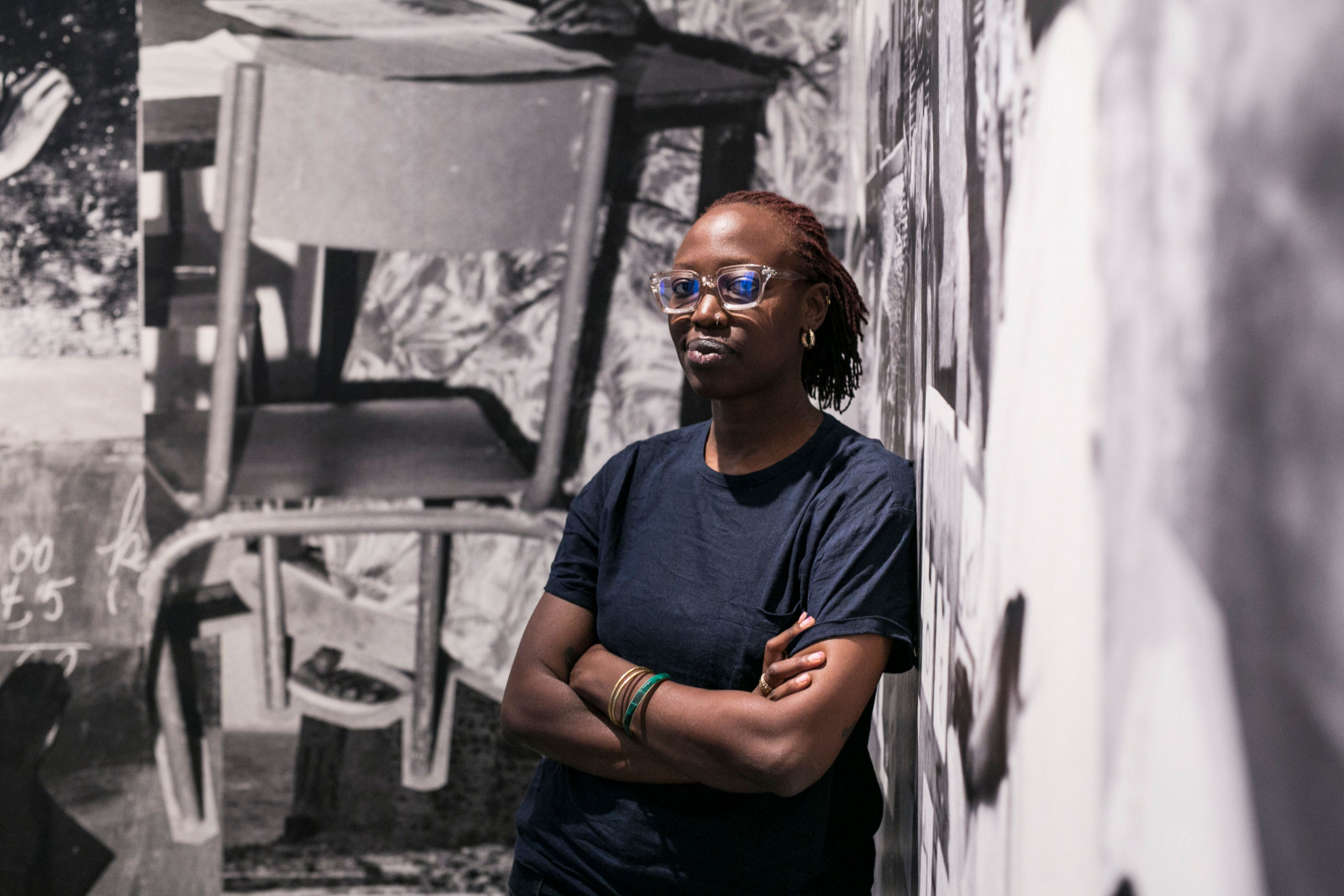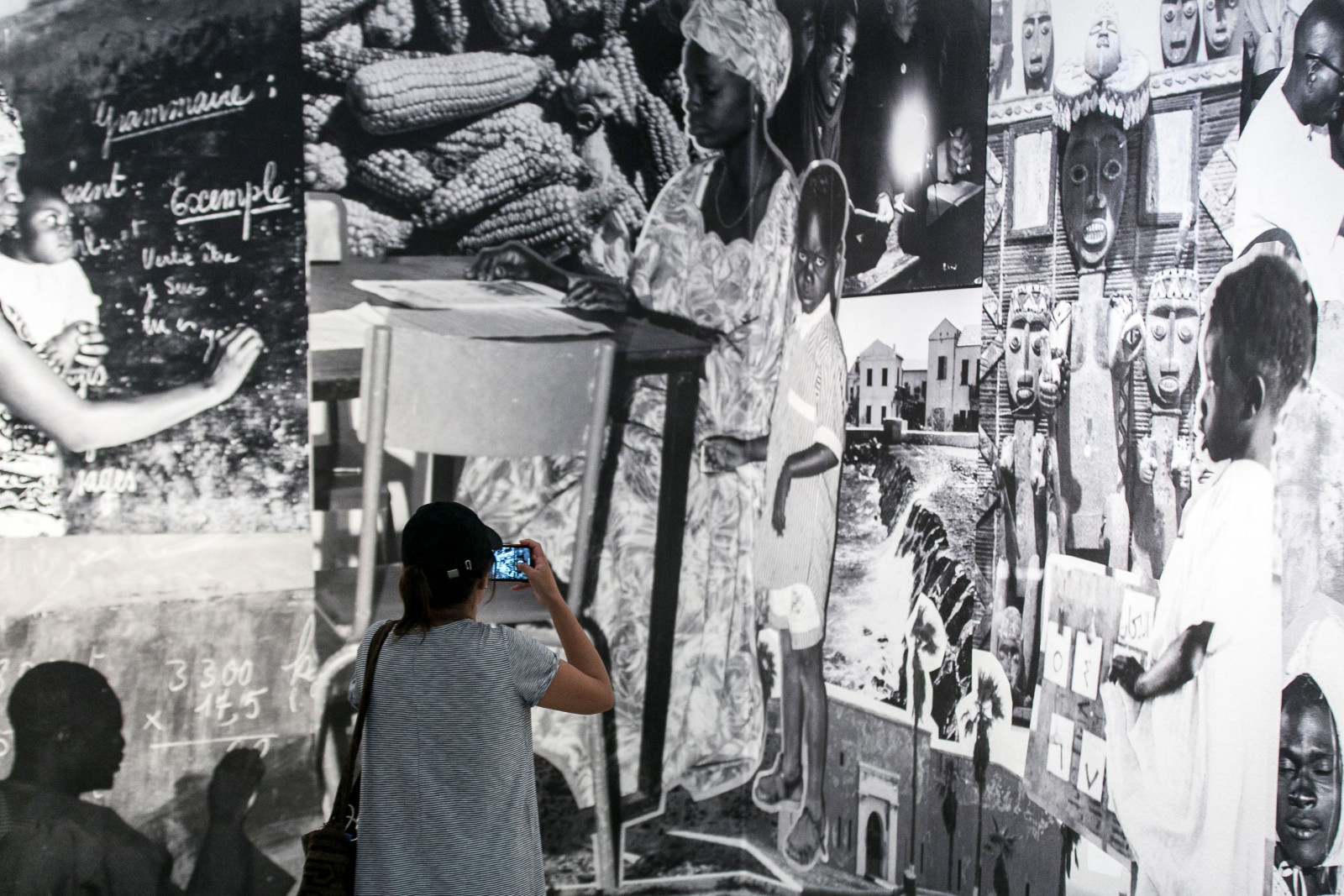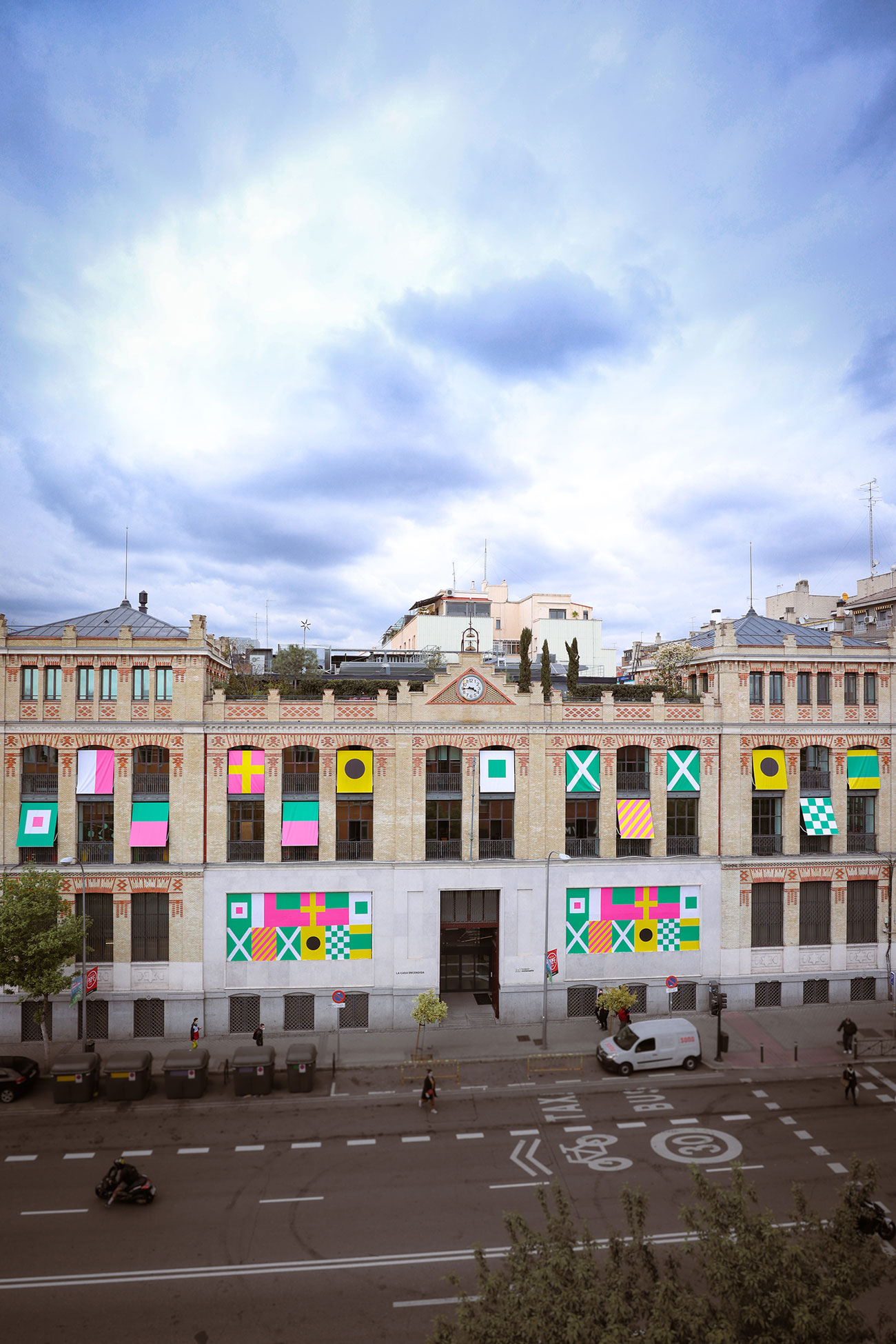An Elegy For An Exile Lost At Sea, by Renée Akitelek Mboya
Within the programming of
Raw Material Company| Target audience: | General public |
| Location: | Sala A |
An exhibition and speculative documentary that utilises archive material sourced with the cooperation of undocumented Senegalese immigrants living in the Madrid neighbourhood of Lavapiés. This work is a product of the Nairobi-born writer, curator and filmmaker’s residency at La Casa Encendida, as part of the RAW Material Company initiative.
An Elegy For An Exile Lost At Sea is a work of speculative documentary using archival material, compiled in collaboration with undocumented Senegalese migrants from the community of Lavapies in Madrid.
Playing on the notion of griot, An Elegy For An Exile Lost At Sea instrumentalists and proposes a poetic genealogy of contemporary migrant histories through moving image, photography and sound. Merging collective retellings, archival footage, photographs, sound archives, film references from the immediate post independence period, as well as archival recordings from the Archives Culturelles du Senegal and narratives transmitted through social media (voice notes, video recordings, sermons) in collaboration with often invisibilised and undocumented storytellers - we prioritise shared retellings as a way to contribute to a contemporary archive of a largely marginalised, criminalised and forgotten population.
An Elegy For An Exile Lost At Sea is a collaborative documentary project made with the participation of with Senegalese migrant communities in Madrid. Together we worked to develop a database, using phonostylistic techniques which exist among a diversity of African cultures - but specifically in the West African and Wolof speaking context (jat, nor nopp, mbabor) as an extension of the memory activism and archival practices of griots. We hoped to reclaim these practices in the context of communities in exile and in transit.
An elegy is a poem of serious reflection, sometimes used as a catch-all to denominate texts of a somber or pessimistic tone, sometimes as a marker for textual monumentalising, and sometimes strictly as a sign of a lament for the dead.
Renée Akitelek Mboya’s installation stems from her previous residency at La Casa Encendida, where she worked to develop a methodology specific to the Spanish context and in connection with the Afro-diasporic community of the Lavapiés district. That residency resulted in the production of a film and a solo exhibition devoted to her artistic practice.
This is the second part of the carte blanche which La Casa Encendida has given RAW Material Company (a centre for art, knowledge and society based in Dakar, Senegal) to curate activities in Room A over the course of 2024.
Renée sees herself as more of a curator and filmmaker than an artist. Her oeuvre questions the way that stories have of travelling through time and round the world.
Renée Akitelek Mboya is a writer, curator and filmmaker who lives in Nairobi. Her work relies on biography and storytelling as forms of research and production. Renée is currently concerned with looking at and talking about images and the ways in which they are produced, particularly, as the artist explains, “how they have come to play a critical role as evidence of white paranoia, and as aesthetic idioms of racial violence”. She works between Dakar and Nairobi and is a collaborative editor with the Wali Chafu Collective.
She did a residency in Dakar, where she shot her film The Witnesses The Wayward The Waiting. The work focuses on the word-of-mouth process, tracing the path of a supposedly historical truth and how it is approached from different perspectives—academic, historical, encyclopaedic, sociological or gender-related—and thereby challenging the very basis and meaning of the truth in question.
Renée conducts her research by formulating enquiries and questions that put her in touch with communities. To showcase this filmmaker’s work in the specific context of the Lavapiés district, RAW invited her to do a residency at La Casa Encendida.
In Renée’s own words, her research in Madrid “is anchored to the Lavapiés neighbourhood, whose reality is a product of Spain’s complex history and the sociocultural issues that feed its hunger for modernity. It’s also a stage in the fight against gentrification, a neighbourhood that has witnessed multiple migration waves, bringing stories, joys and sorrows in their wake. In the centre of this districts stands Plaza Nelson Mandela, a square that has become a gathering place for immigrants: those who’ve managed to integrate as well as those still suffering from the post-traumatic stress of their journey who didn’t receive proper care upon arrival, not to mention the ones who have already settled in, opened businesses and created activity that generates support for the migrant community.”
While exploring this reality, Renée held conversations with the neighbourhood’s various communities. And she has woven a narrative whose inherent methodology, like that of her previous productions, is captured in the film now being shown in Room A at La Casa Encendida.
RAW Material Company is an initiative involved in curatorial practice, art education, residencies, knowledge production, and the archiving of art theory and criticism. It works to foster appreciation for and the growth of artistic and intellectual creativity in Africa with a cross-disciplinary programme that is equally informed by literature, film, architecture, politics, fashion, cuisine and diaspora.
Since 2021, La Casa Encendida has been inviting different curators to rethink the exhibition space in Room A, making its temporary landscape more pertinent to our time. The idea is to spend one year exploring a theme with different artists or collectives. There are no set rules, only an opportunity to question and expand the possibilities of an exhibition space and contemporary narratives.
